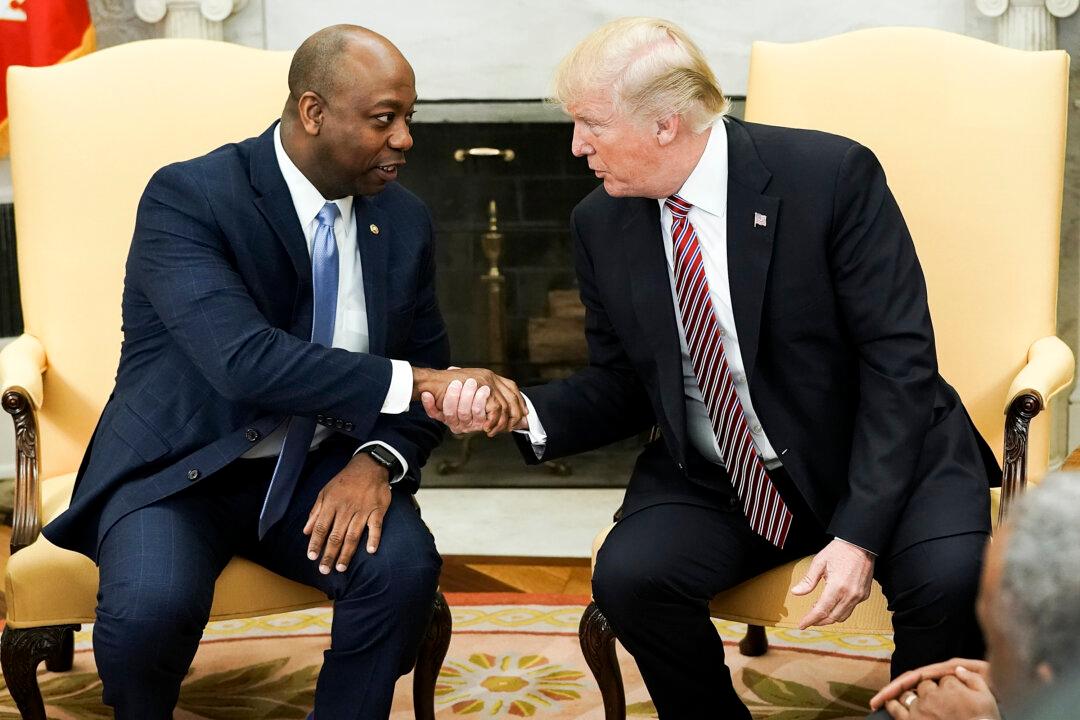Sen. Tim Scott (R-S.C.) said that former President Donald Trump had been more beneficial for minority communities than President Joe Biden, while dismissing the ongoing liberal outrage over his support for President Trump’s GOP nomination.
Trump Did More for Minorities Than Joe Biden Will Ever Do: Tim Scott
Senator calls on Republicans to ‘coalesce around Donald Trump today. Not tomorrow, today.’

President Donald Trump shakes hands with Sen. Tim Scott at the White House during a working session on opportunity zones, on Feb. 14, 2018. Photo by Alex Wong/Getty Images




